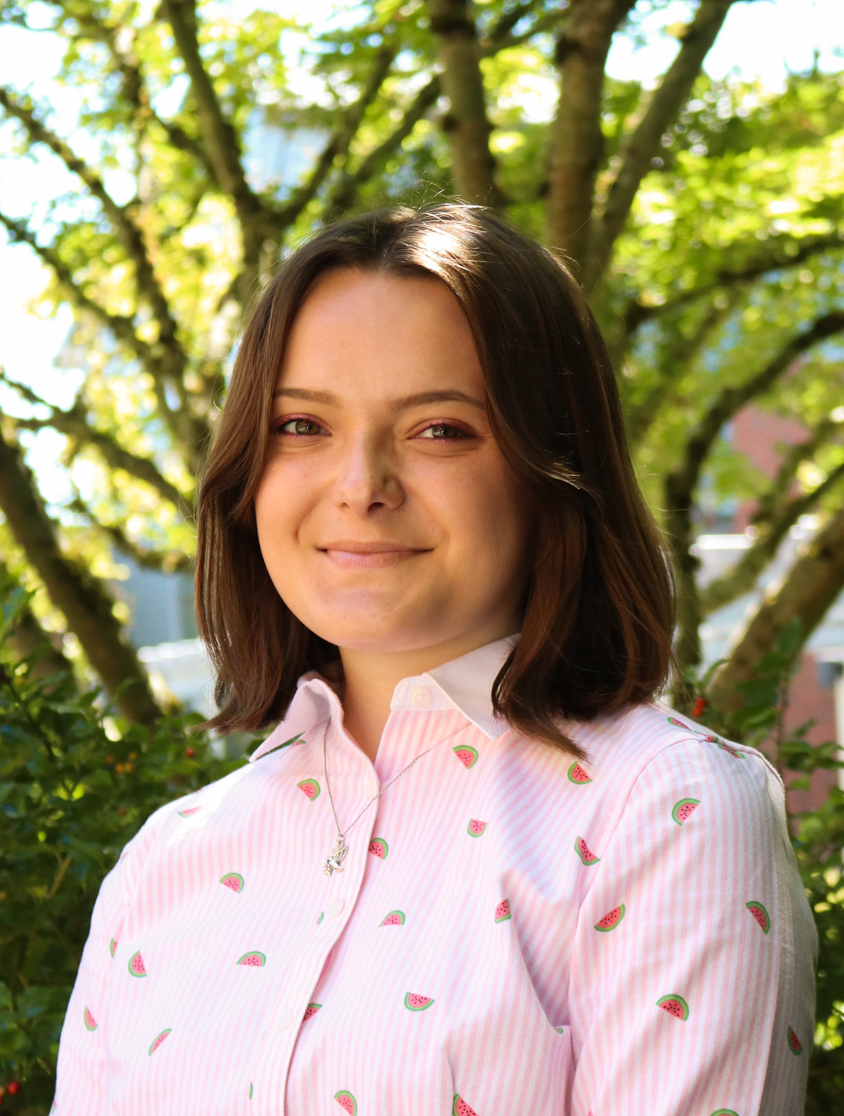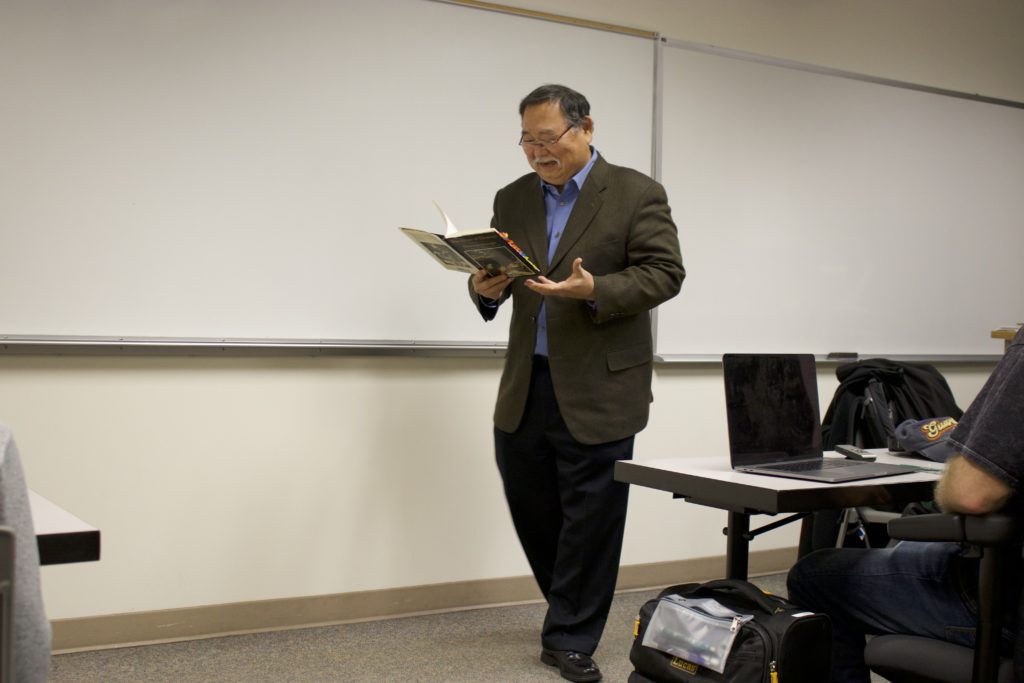Poetry is a literary method used to demonstrate imaginative originality. By showing an array of emotions through a combination of style and rhythm, it serves as an opportunity for artists to express themselves through their writing. For an evening of poetic discussion, WSU Vancouver arranged the “Creative Writers Series” to host Pulitzer Prize nominee and professor at the University of Oregon, Garrett Hongo.
The United States Pulitzer Prize is given to authors who demonstrate mastery in journalistic or literary writing, among others.
Hongo is a Japanese American poet who composes works surrounding elements of Japanese American history. However, he expressed that he has become wary of discussing his personal background in his poetry.
“What I try to do is give a note or two rather than to skew a disposition. I know younger audiences tend to know very little about Japanese American history or the history of Japanese in the United States. I can’t make up for their lack of knowledge in the short time that I present, so I simply would give them some small bits and that’s it,” Hongo said. “I know that what universities list, or that they like to list, my appearance as some kind of requirement for checking the box for diversity, and I kind of resent that actually.”
Hongo said that universities try to simplify diversity to make it palatable, but diminish it instead. “I think the culture still is quite resistant to the idea that there are diverse people and each of us has an affinity for a very very defined, and refined, history that can be multiple and complicated. It’s not easily explained by simply subscribing to a category of identity,” Hongo said.
The creative writers series events often see students who are a part of the creative writing english program on campus.

Roxy Hong, a junior pursuing a double degree in english education and humanities with a concentration of fine art, is a member of this creative writing course, English 499. She explained that the creative writers series is a great way for students to get in contact with people who are professionals in their fields as authors.
Hong said she appreciated many elements of Hongo’s poetry and prose. “I related heavily to how he uses descriptions of natural organic elements, plants and the environment, Hong said.
Caleigh Maffett, vice chairman of the Student Media Board and a senior majoring in humanities with concentrations of english and communication, is also a student in the creative writing course. She commented on Hongo’s use of detail in his poetry, as well as how effective the creative writers series is for students.
“These kind of events, I think that it’s really valuable because those kids who are trying to do that kind of stuff professionally or even as a hobby, it gives them different perspectives to look at,” Maffett said.
Research goes into each of Hongo’s works. He gives himself assignments and establishes writing goals, but he said teaching takes up the majority of his time.
Hongo described his interest in English as a “keeper of the language.” He said students who love to write should recognize their love for English, maintain that love, and “seek a teacher who tells you the truth.”
“Volcano: A Memoir of Hawaii,” Hongo describes as one of his best books. He explained that it is a “hybrid book, consisting of nonfiction memoir poetry,” and includes his research about volcanology, rainforest biology and local oral history of Hawaii.
Hongo noted that his attraction to writing began at a very young age. He recalled his childhood, when he created his own songs, singing near the sugarcane stalk patches near his grandparent’s house. “At different times, I’ve made different declarations about when I might’ve started [writing], but I am constantly unmasking, and reminded that it’s even earlier than even I realize,” Hongo said.

Olivia is a senior studying English at WSU Vancouver.
